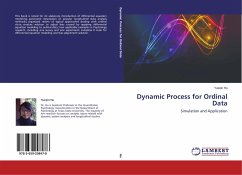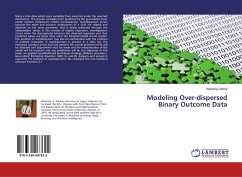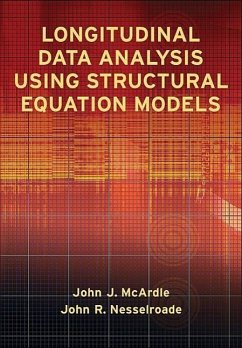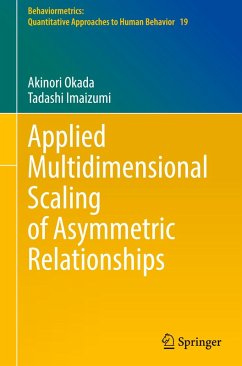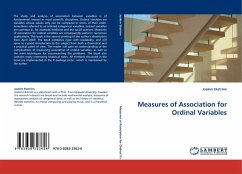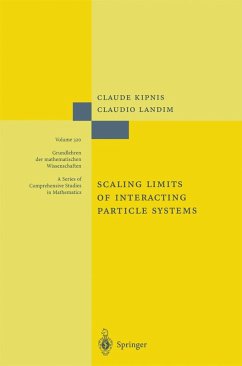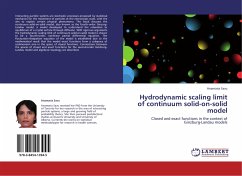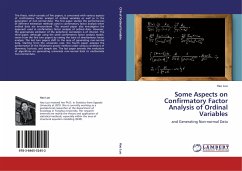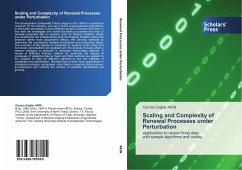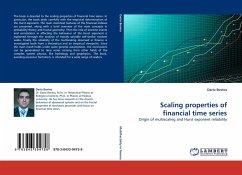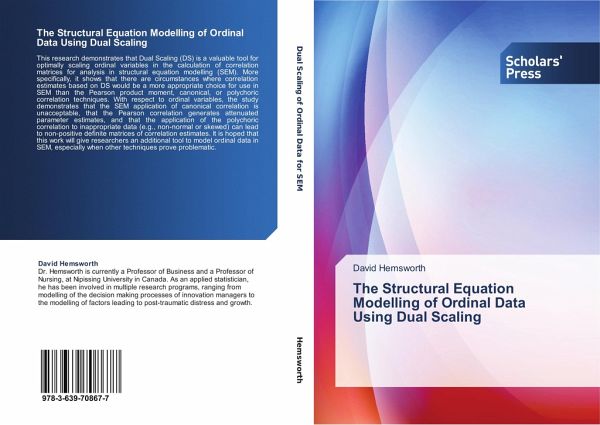
The Structural Equation Modelling of Ordinal Data Using Dual Scaling
Versandkostenfrei!
Versandfertig in 6-10 Tagen
47,99 €
inkl. MwSt.

PAYBACK Punkte
24 °P sammeln!
This research demonstrates that Dual Scaling (DS) is a valuable tool for optimally scaling ordinal variables in the calculation of correlation matrices for analysis in structural equation modelling (SEM). More specifically, it shows that there are circumstances where correlation estimates based on DS would be a more appropriate choice for use in SEM than the Pearson product moment, canonical, or polychoric correlation techniques. With respect to ordinal variables, the study demonstrates that the SEM application of canonical correlation is unacceptable, that the Pearson correlation generates at...
This research demonstrates that Dual Scaling (DS) is a valuable tool for optimally scaling ordinal variables in the calculation of correlation matrices for analysis in structural equation modelling (SEM). More specifically, it shows that there are circumstances where correlation estimates based on DS would be a more appropriate choice for use in SEM than the Pearson product moment, canonical, or polychoric correlation techniques. With respect to ordinal variables, the study demonstrates that the SEM application of canonical correlation is unacceptable, that the Pearson correlation generates attenuated parameter estimates, and that the application of the polychoric correlation to inappropriate data (e.g., non-normal or skewed) can lead to non-positive definite matrices of correlation estimates. It is hoped that this work will give researchers an additional tool to model ordinal data in SEM, especially when other techniques prove problematic.



